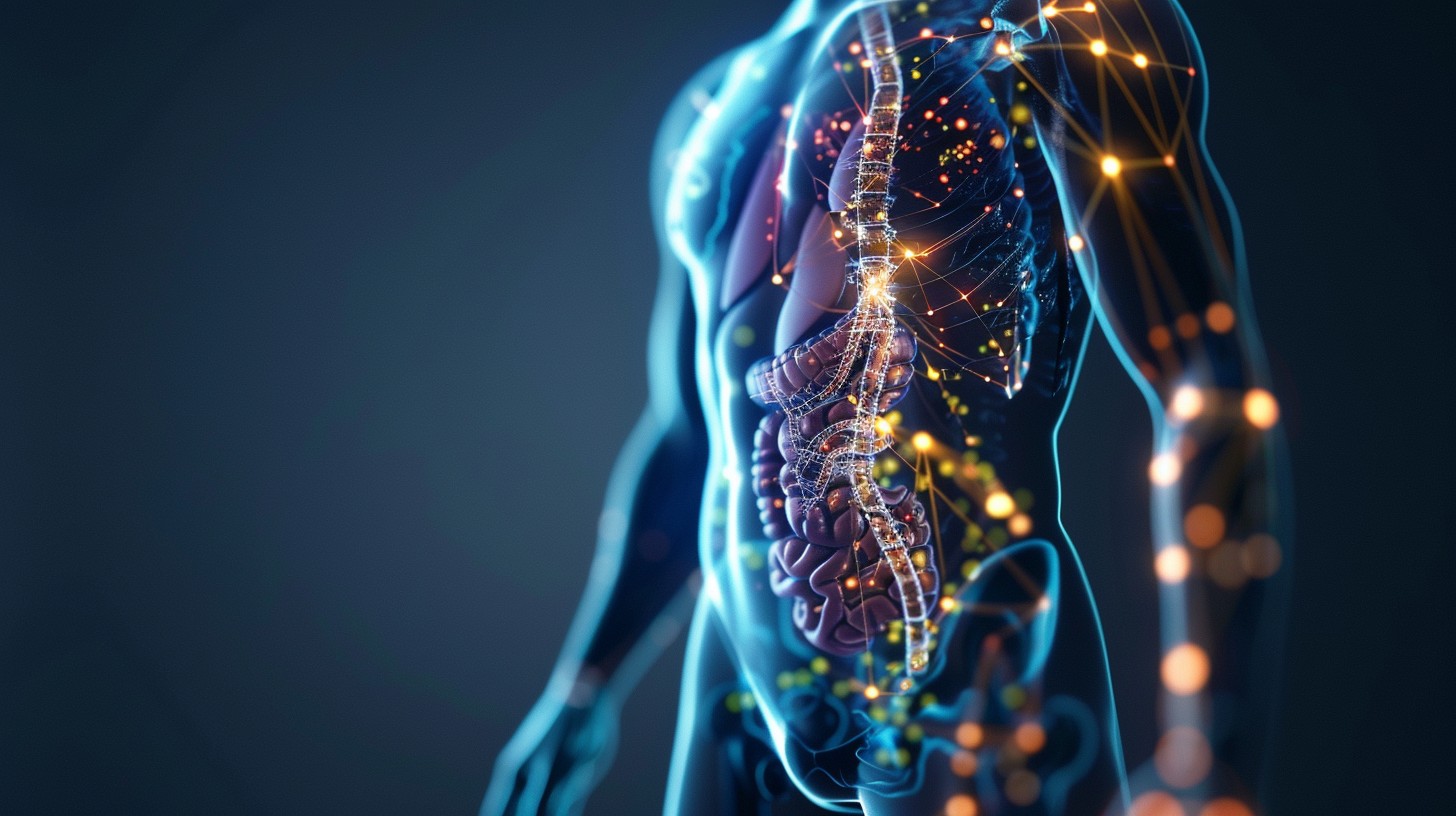The Role of the Endocrine System (Hormones) on Fitness, Weight Loss, and Muscle Gain
Photo by StockCake: https://stockcake.com/i/digital-human-anatomy_687719_817637

The endocrine system, which produces hormones, is integral to regulating various bodily functions, including metabolism, appetite, energy levels, and muscle growth. Understanding how hormones influence fitness, weight loss, and muscle gain can help you tailor your exercise and nutrition plans for optimal results. This blog explores the key hormones involved in these processes, how they function, and strategies to optimize their levels for maximum benefits.
Key Hormones in Fitness, Weight Loss, and Muscle Gain
1. Insulin: The Blood Sugar Regulator
Function
Insulin, produced by the pancreas, regulates blood sugar levels by facilitating the uptake of glucose into cells for energy or storage as fat.
Impact on Weight Loss and Muscle Gain
High insulin levels, often resulting from a diet high in refined carbohydrates and sugars, can promote fat storage and hinder weight loss. However, insulin also plays a role in muscle protein synthesis, essential for muscle gain.
Optimization Strategies
- Diet: Focus on low glycemic index foods, high-fiber vegetables, and lean proteins to stabilize blood sugar levels and improve insulin sensitivity.
- Exercise: Regular physical activity, especially strength training, can improve insulin sensitivity and promote muscle growth.
2. Cortisol: The Stress Hormone
Function
Cortisol, produced by the adrenal glands, is released in response to stress. It helps regulate metabolism, immune response, and energy levels.
Impact on Weight Loss and Muscle Gain
Chronic high cortisol levels can lead to increased appetite, cravings for sugary and fatty foods, and abdominal fat accumulation. Additionally, elevated cortisol can break down muscle tissue for energy, hindering muscle gain.
Optimization Strategies
- Stress Management: Practice relaxation techniques like meditation, yoga, or deep breathing exercises to manage cortisol levels.
- Sleep: Ensure adequate sleep to help regulate cortisol levels and support muscle recovery.
3. Leptin: The Satiety Hormone
Function
Leptin, produced by fat cells, signals to the brain that the body has enough energy stored, thereby suppressing appetite.
Impact on Weight Loss
Leptin resistance, common in obese individuals, disrupts this signaling, leading to overeating despite sufficient energy stores.
Optimization Strategies
- Diet: Consume a diet rich in antioxidants and omega-3 fatty acids to improve leptin sensitivity.
- Sleep: Adequate sleep helps regulate leptin levels and improve appetite control.
Heading Strategies to Optimize Hormone Levels
- Balanced Diet
- Focus on whole foods, lean proteins, healthy fats, and complex carbohydrates.
- Avoid refined sugars and processed foods that can disrupt hormonal balance.
- Regular Exercise
- Incorporate a mix of cardio, strength training, and flexibility exercises.
- High-intensity interval training (HIIT) is particularly effective for boosting HGH and testosterone levels.
- Stress Management
- Practice mindfulness, meditation, or yoga to manage stress and regulate cortisol levels.
- Engage in hobbies and activities that promote relaxation and well-being.
- Adequate Sleep
- Aim for 7-9 hours of quality sleep per night.
- Establish a regular sleep routine and create a restful sleep environment.
- Supplementation
- Consider supplements such as vitamin D3, omega-3 fatty acids, and magnesium to support hormonal health.
- Consult with a healthcare professional before starting any new supplements.
Conclusion
The endocrine system, through its complex network of hormones, plays a pivotal role in fitness, weight loss, and muscle gain. By understanding the impact of these hormones and adopting strategies to optimize their levels, you can enhance your fitness journey and achieve your goals more effectively.
We'd love to hear from you! Share your experiences or any questions you have about hormones and fitness in the comments below. Let's learn together, see you all in the next blog. Keep Going & Growing 💪
References
- American Council on Exercise (ACE). (n.d.). Insulin and Weight Loss. Retrieved from ACE Fitness
- Journal of Endocrinology. (2014). The effects of cortisol on metabolism. Retrieved from Journal of Endocrinology
- Journal of Clinical Endocrinology & Metabolism. (2015). Leptin Resistance and Obesity. Retrieved from Journal of Clinical Endocrinology & Metabolism
- Sleep. (2004). The role of ghrelin in appetite regulation and sleep. Retrieved from Sleep
- Journal of Applied Physiology. (2001). Testosterone and muscle growth. Retrieved from Journal of Applied Physiology
- Journal of Steroid Biochemistry and Molecular Biology. (2013). Estrogen and fat distribution. Retrieved from Journal of Steroid Biochemistry and Molecular Biology
- Journal of Clinical Investigation. (2005). Human Growth Hormone and Metabolism. Retrieved from Journal of Clinical Investigation
- Thyroid. (2011). The role of thyroid hormones in metabolism. Retrieved from Thyroid